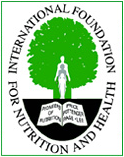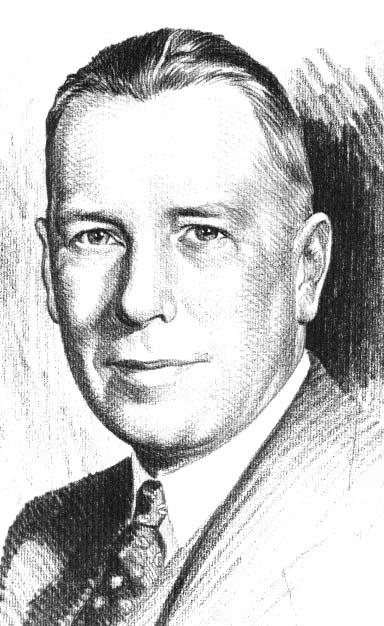Research Report # 92102 — Clinical Nutrition Brief.
By Dr. Richard Murray, Pace, Florida, U.S.
If the human body was reduced to its simplest form, it would be a small pile of ashes. All the carbon, hydrogen, oxygen and nitrogen — the elements present in the greatest abundance in the body — would dissolve into air or evaporate. Only the minerals would be left. The remaining ashes weigh about 5 pounds (approximately 4 % of the total body weight) and represent only a small portion of the whole body; yet they play essential roles in all body tissues and functions.
Minerals are sometimes defined as “inorganic elements”. Inorganic indicates a mineral substances in a form in which it occurs BEFORE it has been acted upon by living cells. Plants absorb inorganic minerals from the soil, then change them into organic forms. An organic mineral is a mineral element in a special chemical combination that is specifically needed for the reactions and functioning of living cells. The inorganic minerals are a major part of the composition of body fluids. Both inorganic and organic forms of minerals are essential to the operation of living cells.
It is the group of organic (organized) minerals called “alkaline-ash minerals” that we here consider, these being the components of the supplement Alkaline-Ash Minerals. These are made up of plant-source food complex minerals.
MINERAL SOURCES
* The best sources of dietary alkaline-ash minerals are raw, green leafy vegetables. All raw fruits and raw vegetables, as well as raw nuts, are good sources.
* Food skins. Minerals concentrate mostly in the skins of foods or in foods which have large skin surfaces: such as onions, garlic.
* Spices. The minerals are what give them their strong flavors.
* Alfalfa, and the leaves of dandelions.
* Foods from the ocean: dulse, kelp, sea weeds. The water from the ocean is the only complete source of every mineral and trace mineral on the face of the earth. The composition of ocean water is identical to that of human blood — differing mainly by its concentration of these minerals.
MINERALS AND HEALTH
There are 21 minerals known to be essential to human health. Probably all minerals are essential, but why and how this is not yet known to science. Those minerals present in the body in amounts greater than a teaspoon include: Calcium Magnesium Potassium Sulfur Chloride Phosphorus Sodium
Trace elements present in the body in amounts less than a teaspoon include: Chromium Fluoride Manganese Selenium Cobalt Iodine Molybdenum Silicon Copper Iron Nickel Vanadium Zinc Tin
In our bodies are known trace amounts of arsenic, barium, boron, bromine, cadmium, strontium, gold, silver aluminum, bismuth, gallum and many other minerals. How they affect health and maintain normal body functions is still being studied.
The principle alkaline-ash minerals are potassium, sodium, calcium and magnesium, together with many trace minerals. They are distinguished from acid minerals, such as phosphorus and other acid trace minerals.
THE ROLE AND FUNCTIONS OF MINERALS IN OUR BODIES
All minerals always work and inter-function as teams with the other vitamins, minerals, enzymes and hormones.
These nutritional factors are needed for
* the biochemistry of inflammation
* the repair and maintenance of cells and tissues
* the maintenance of body temperature
* the balancing of the composition of body fluids
* the proper handling of blood sugar
* the formation of lymph fluids and functions of the lymphatic system.
* the transporting of carbon dioxide to the lungs and out of the body via the red blood cells
* the production of ova (eggs) and sperm
* bone growth
* liver functions
* balancing hormones
* working with insulin for the entry of sugar into cells where it is utilised.
* the production and secretion of digestive fluids and enzymes
* normal kidney functions; the reabsorption of elements from fluids before they are eliminated from the body as wastes
* removal of wastes and toxins from the body
* lower systolic and diastolic blood pressures when elevated.
* support the normal functions of digestion. They help prevent or resolve digestive disorders.
* relax and open up the blood vessels, and maintain the normal blood flow to the heart via the coronary blood vessels. They offset or correct angina.
* relax and open up the bronchial and lung tubes. This is the prevention and control of Asthma.
THE ALKALINE-ASH MINERALS
Besides the above functions and roles these special minerals play special roles in our body metabolism.
* They are specially supportive to the function of the nervous system (known as the parasympathetic nervous system) which calms, relaxes, slows down, promotes healing, improves and increases metabolism and corrects imbalances of all the other minerals. These are known as electrolyte imbalances. Electrolyte elements like potassium, chloride, sodium, calcium, magnesium and phosphorus are electrically-charged substances that conduct electricity, through the nerves, and to, and through, our bodies.
* They assist in stabilizing calcium and potassium in tissue fluids. By this means a proper balance between the overactive (sympathetic) and underactive (parasympathetic) functions of the nervous system are created and assured.
* Stop muscle cramping by maintaining blood circulation and providing calcium to relax the nerves which cause the muscle contractions and tenseness.
* Offset and relieve the body of Raynaud’s disease and numbing and tingling, all of which are also constrictions of the small blood vessels.
* Help maintain a good and constant flow of blood to the joints and ligaments, thereby counter acting the processes which lead to arthritis.
THE ALKALINE MINERALS AND THEIR SPECIAL BODY FUNCTIONS
Minerals are vital as structural components and are needed in many body processes.
* They provide structure to bones,
* They take part in muscle contraction,
* They play a major role in building protein,
* They are essential to formation of blood,
* Energy production is not possible without minerals
* They conduct electrical impulses along nerves
* They transport substances in and out of cells.
* They regulate the pH which is the balance between acids and alkalines in the body.
* They play a major role in the electricity of the body.
Electricity is one of the most important sources of life energy and vital reserves. Minerals aid in the maintaining of the electrical charges. The minerals found in the body and in foods are mostly in “ionic” form. These electrical charges act like a magnet to attach to other electrically-charged substances, forming complex molecules.
* They regulate fluid pressure between cells and blood.
* They are responsible for body repair of cells and tissues
* They control temperature and fluid balance
* They play a vital role in the use and handling of blood sugars and much more.
MINERAL DEFICIENCY PROBLEMS AND SYMPTOMS
If body reserves of natural, alive, food concentrate forms of alkaline-ash minerals are inadequate, symptoms of vitamin deficiencies start to be experienced. Vitamins promote mineral metabolism. (Metabolism is the processing or using of everything in the body).
Some common symptoms of mineral deficiencies are . . .
* FAST PULSE: TACHYCARDIA AND ARRYTHMIAS. These are triggered mainly by an excess consumption of refined carbohydrates — like sweets. They ‘displace’ the needed minerals. Racing of the heart, (tachycardia) if prolonged, overloads and tires the heart. Alkaline-ash minerals form the normal governing or brake system of the nervous system, whose job it is to control and slow down the nerves and the heart.
* CHRONIC FATIGUE and lassitude.
* MUSCLE WEAKNESS.
* CRAMPING AND SPASMS OF MUSCLES: Those of the body as well as those of the stomach and intestines
* NERVOUSNESS; irritability,
* ANXIETY, tension, tendencies to worry
* DEPRESSIONS
* HEADACHES
* ACIDOSIS: Including the acidosis of diabetes. Acidosis is aggravated by diabetes.
* SHORTNESS OF BREATH
* HIVES
* CANKER SORES
* DEHYDRATION; Dry mouth; decrease of the flow of saliva.
Dry skin and mucus membranes. Diminished perspiration. Dry and hard stools.
* CONSTIPATION. Bowel elimination and peristalsis — the wavelike contraction-expansion movements of the intestines, depends on the alkaline ash minerals.
* ADRENAL GLAND FATIGUE. Brought on by excess mental, emotional, or physical stresses.)
* ENDOCRINE GLAND IMBALANCES — including the under and/or over functioning of the thyroid gland. Excesses of body acids and acid minerals are like whips that make the body engine (organs) — including the thyroid, work at too high a speed. This is an over activate body metabolism, which slows down by the action of the alkaline-ash minerals.
* DIFFICULTIES IN SWALLOWING: Feeling of a lump in the throat.
* PRONENESS TO GAGGING — when the tongue is depressed.
* GOUT: The abnormal deposits of uric acid salts in the toes which create the pain should normally be controlled and balanced by the alkaline-ash minerals.
* SENSITIVITIES TO BRIGHT LIGHTS; All organs that register sensations are more sensitive when too acid — that is, lacking the alkaline-ash minerals.
SUGGESTED USE OF ALKALINE-ASH MINERALS:
1 – 4 a day. Or as many as needed to normalize any or all of the above symptoms and problems.
Individual dose needs are best determined by testing the pH (acid alkaline balance) of urine and saliva. This is discussed in another booklet — “Health is Acid Alkaline Balance.
-=-=-=-=-=-=-=-=-=-=-=-=-=-=-=-=-=-=-=-=-
The remainder of this monograph is by Dr. Leo Roy
Gross minerals and trace minerals are amongst the most essential of your body constituents. There are between 100 – 200 kinds. Science still has not reached a point of knowing them all.
They make up about 5 % of the body. No cell growth, body structure or physiological function exists without its special combination of minerals. The trace minerals in combination with proteins, make up the structures of the chromosomes of our cells and all the enzymes. Both of these are responsible for the life and integrity of our bodies.
Minerals / trace minerals are “100” times more important than all of our vitamins.
To provide you with all the information about minerals would require a book. This monograph chooses to give you a thumb nail sketch of three of the gross minerals which influence your body and health the most.

